Projected to reach around $2 trillion this year in asset value, the growth of Islamic finance and the versatility of its unique services has caught the attention of both Muslims and non-Muslim investors alike.
For Muslims living within a non-Muslim majority country, many face the struggle of having limited options in how to invest or manage their money in a halal way. But with Muslim populations growing around the world, the Islamic finance industry has recently seen a boom in interest.
As the trillion dollar industry expands by 15-25 per cent each year, Western countries, such as the UK and Australia, have become more willing to implement initiatives within their mainstream financial sector which are more compliant with Islamic values and meet the long-due needs of their Muslim citizens.

However, despite these new opportunities to invest and bank more Islamically, Islamic finance remains a niche market. In places where conventional financial practices are the norm, there likewise remains a level of uncertainty on how Islamic finance institutions work, including doubts on whether or not such institutions are even different or more beneficial than services already offered by the mainstream.
So what exactly is Islamic finance and how should businesses following the Islamic model operate?
Within the world of finance, the Islamic way of managing money differs from the mainstream in its adherence to Sharia (Islamic Law). For a financial institution to be considered compliant under Sharia, the institution must not encourage practices which are haram or unlawful within Islam. This includes:
- No financial agreements involving riba (which often manifests in the modern business sector as usury or interest);
- No funding of any projects or business which promote unethical activities (such as the selling of any alcohol, pork, arms, pornography or gambling services); and
- No prevalence of maisir (where the ownership of goods depends on an uncertain event in the future) or gharar (which involves the sale of items whose existence is uncertain) within contracts between the business and its clients.

Through implementing these basic principles, businesses and individuals using the Islamic finance can expect to make socially responsible investments, where all business partnerships formed and contracts produced should be transparent – identifying all potential risks and assets involved in the investment or transaction – and respect the rights of all parties involved by ensuring no party is favoured in the exchange over another.
Islamic finance also prioritises on providing services to “earn” their profits, in contrast to more conventional financial institutions, which focus on practices which increase wealth and generate the most profit through interest.
However, while Islamic finance provides these benefits, institutions following this model have been historically confined to the Middle East and other Muslim countries such as Malaysia, due to strong backing from their governments, who already deem the Islamic way as the trusted model for finance and banking.
But within the competitive international market, the high costs and stringent regulations in operating Islamic finance institutions has contributed to the slow introduction of the system into the mainstream, not helped by the lack of non-Muslim experts or even Muslim scholars in the finance sector who are able to explain or implement the methods provided within Islamic finances which can compete with conventional investing and banking practices.
Just like conventional financial practices, individuals and businesses can make financial arrangements and use investment vehicles under the Islamic finance system, the difference being the absence of usury and more transparency between the parties involved in the financial matters.

Financial arrangements which can be made under the Islamic system include:
- Mudarabah – a profit-and-loss sharing partnership agreement where one partner provides capital to another partner who is responsible for the management and investment of the capital;
- Musharakah – a joint venture (which comes in two forms – diminishing or permanent) where all partners contribute capital and share the profit and loss on a pro-rata basis;
- Murabaha – installment sales which starts with an intermediary buying the home with a free and clear title to it;
- Ijarah – a leasing arrangement where the lessor leases the property to the lessee in exchange for a stream of rental and purchase payments, ending with the transfer of property ownership to the lessee; and,
- Salam and Istisna – also known as Islamic forwards, and are used for certain types of business with a specific set of conditions required to make the arrangement permissible.
Investment Vehicles under the Islamic system include:
- Islamic equities, which are investments (including private) in company shares that are viable for permissible activities (so no lending at interest, gambling, production of alcohol or pork); and,
- Fixed-income instruments through sukuk or “Sharia-compliant bonds”, which represents a partial ownership in an asset, not a debt obligation.
Contrary to popular belief, anyone, both Muslims and non-Muslims, can use and benefit from the Islamic finance system. In an age where Islamic finance is gradually but surely becoming more mainstream and accessible, it is important to outline the strengths and observe the proper regulation of a system which has been a tried and proven model since the time of the Prophet (SAW) and see that it can be implement in a way where Allah (SWT) may be pleased with us.





